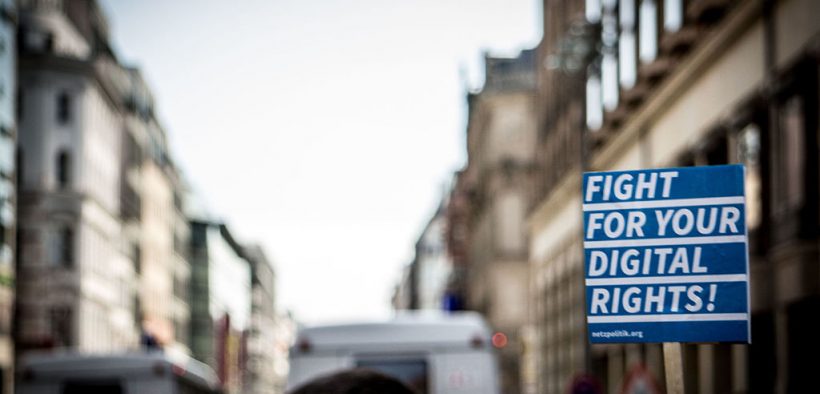World Press Freedom Day Passes With Murder of Mexican Journalist

World Press Freedom Day was observed on May 3, but the murder of a Mexican journalist the day before cast a dark shadow on the day.
On the eve of World Press Freedom Day (May 3) of this year, a Mexican journalist was killed in the state of Oaxaca, the fourth journalist murdered in Mexico this year so far. The murder underscored the continuing dangers that journalists around the world face.
Telesforo Santiago Enriquez founded a local radio station five years ago in San Agustín Loxicha, approximately 400 miles southeast of Mexico City. The Committee to Protect Journalists (CPJ) reported Enriquez was politically active and part of a local teachers union.
On May 2, Enriquez was found shot dead in the afternoon. The CPJ claimed Enriquez received death threats months earlier allegedly from the brother of the mayor of San Agustin. Enriquez is the fourth radio journalist to be killed in Mexico in 2019.
Mexico was the world’s second most dangerous place for journalists in 2018, with 11 journalists killed. Afghanistan topped the list with 16 journalists murdered last year.
2018 Journalists Lost
At least 95 journalists were killed while on duty in 2018 said the International Federation of Journalists (IFJ) in its latest annual report – an increase of 13 deaths over the previous year’s total.
The IFJ reported the year 2006 as the deadliest year for journalists and media workers on record with 155 deaths. 2019 so far has seen 15 journalists killed according to the IFJ.
One of the highest profile cases of a journalist’s killing in recent years was the 2018 murder of Saudi journalist Jamal Khashoggi. He was killed in the Saudi Arabian Consulate in Istanbul, Turkey in October 2018. While many believe Saudi crown prince Mohamed bin Salman (MBS) was the mastermind behind Khashoggi’s assassination, the Saudi royal family has denied any involvement in the murder.
Hundreds of journalists are also jailed every year. The Committee to Protect Journalists (CPJ) stated that at least 250 journalists were jailed in 2018. Turkey imprisoned the most journalists worldwide (68), followed by China (47) and Egypt (25).
Turkey’s highest court recently rejected an appeal of two journalists jailed for being linked with the failed coup to oust President Recep Tayyip Erdogan in 2016. Last year, Turkey handed a life sentence to journalists Nazli Ilicak and Ahmet Altan for allegedly having ties to the outlawed group Fethullah Gulen.
Journalism in US Suffers Too
Despite long-established laws guaranteeing press freedom, the United States fell three spots in 2018 on the global press freedom index put out annually by Reporters Without Borders (RSF). The U.S. came in at 48, three spots lower than 2017.
RSF described press freedom in the U.S. as ‘problematic’ and referenced President Donald Trump’s frequent labeling of media as the enemy of Americans. The RSF report also mentioned multiple instances of Trump restricting press access including preventing CNN correspondent Kaitlin Collins from entering an open-press event, revoking CNN reporter Jim Acosta’s press pass, and the screening of journalists’ electronic devices at the U.S.-Mexico border.
Prior to the Khashoggi saga, in June 2018, a man opened fire at the office of Capital Gazette newspaper in Annapolis, Maryland killing five. The perpetrator, Jarrod Ramos, had previously sued the newspaper in 2012 for defamation after a columnist wrote about him.
Fake News Vs Press Freedom
The development of the internet and the use of social media drastically changed how journalists work and the field of journalism. People can now access information from around the globe and share it with each other with just one click, but it can also lead to the proliferation of and sharing of unverified information.
Several countries have introduced stricter internet regulations to prevent the spread of hoax news. Russian President Vladimir Putin signed an internet sovereignty bill recently to allow for the creation of a Russia-only internet, separate from the rest of the world.
Additionally last March, Putin signed a controversial draft that allows courts to either jail or fine a person who is disrespectful to the government online and also allows the government to block media outlets that publish false news.
Also happening last March, Singapore passed one of the strictest anti-hoax bills in the world. The bill would order social media platforms such as Facebook to delete comments against the “public interest” and put warnings on posts the government deems misleading or false. The bill also allows the government to impose jail time on “malicious actors” and shut down a site’s ability to profit if it amasses too many violations.
According to a Poytner guide on misinformation actions being taken around the world over 40 countries from Bangladesh to the Ivory Coast, the U.S., Indonesia and more are pursuing various ways to police the spread of misinformation.















